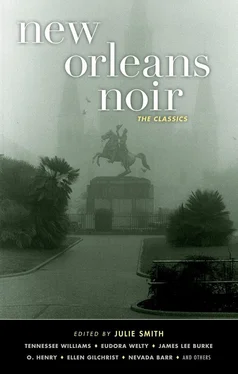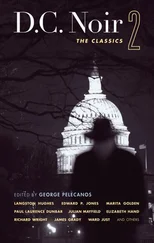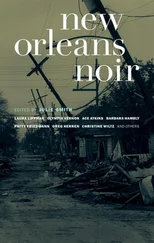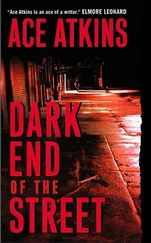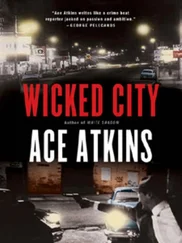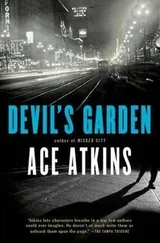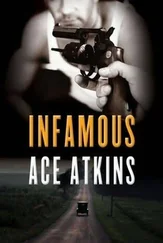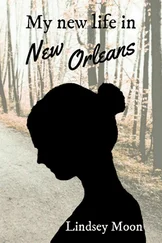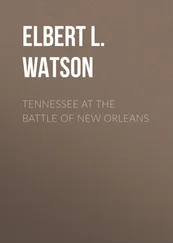Ace Atkins - New Orleans Noir - The Classics
Здесь есть возможность читать онлайн «Ace Atkins - New Orleans Noir - The Classics» весь текст электронной книги совершенно бесплатно (целиком полную версию без сокращений). В некоторых случаях можно слушать аудио, скачать через торрент в формате fb2 и присутствует краткое содержание. Город: New York, Год выпуска: 2016, ISBN: 2016, Издательство: Akashic Books, Жанр: Детектив, на английском языке. Описание произведения, (предисловие) а так же отзывы посетителей доступны на портале библиотеки ЛибКат.
- Название:New Orleans Noir: The Classics
- Автор:
- Издательство:Akashic Books
- Жанр:
- Год:2016
- Город:New York
- ISBN:978-1-61775-384-8
- Рейтинг книги:3 / 5. Голосов: 1
-
Избранное:Добавить в избранное
- Отзывы:
-
Ваша оценка:
- 60
- 1
- 2
- 3
- 4
- 5
New Orleans Noir: The Classics: краткое содержание, описание и аннотация
Предлагаем к чтению аннотацию, описание, краткое содержание или предисловие (зависит от того, что написал сам автор книги «New Orleans Noir: The Classics»). Если вы не нашли необходимую информацию о книге — напишите в комментариях, мы постараемся отыскать её.
takes a literary tour through some of the darkest writing in New Orleans history.
New Orleans Noir: The Classics — читать онлайн бесплатно полную книгу (весь текст) целиком
Ниже представлен текст книги, разбитый по страницам. Система сохранения места последней прочитанной страницы, позволяет с удобством читать онлайн бесплатно книгу «New Orleans Noir: The Classics», без необходимости каждый раз заново искать на чём Вы остановились. Поставьте закладку, и сможете в любой момент перейти на страницу, на которой закончили чтение.
Интервал:
Закладка:
Sophie stood on the steps of City Hall between her husband and Fehim Effendi Curcic, the burgomaster of Sarajevo. Though Sophie and several of her attendants were bleeding from superficial cuts obtained from splinters of the bomb casing, and twelve spectators had been taken to hospital, Curcic obviously had no idea that the motorcade had come close to being blown up. He was surveying the crowd, a pleased look on his fat face. “Our hearts are filled with happiness—” he began.
Francis Ferdinand was white with anger. He grabbed the burgomaster’s arm and shouted into his face, “One comes here for a visit and is received with bombs! Mr. Mayor, what do you say?”
Curcic still didn’t understand. He smiled blandly at the Archduke and launched into his welcome speech again. The Archduke let him continue this time, looking disgusted. Never once did Curcic mention the bombing attempt.
Sophie gripped her husband’s hand. She could see Francis Ferdinand gradually pulling himself together. He was a man of inflexible opinions and sudden rages, painfully thin-skinned, capable of holding a grudge for eternity. He was like a spoiled child, bragging that he had shot five thousand stags, darkly hinting that he had brought down as many political enemies. But Sophie loved him. Not even her children fulfilled her vast need to be needed. This man did.
There was a delay while Francis Ferdinand sent a wire to the Emperor, who would have heard about the bomb. The army wanted to continue with the day’s events, but the Archduke insisted upon first visiting the wounded spectators in the hospital.
He turned to Sophie. “You must not come. The risk is too great; there could be another attack.”
Fear clutched at her heart: of dying, of losing him. “No, I must go with you,” she told him, and Francis Ferdinand did not argue. When they entered their carriage again, Oskar Potiorek, the military governor, climbed in with them. His presence made Sophie feel a little safer.
The motorcade rolled back through the thronged streets. When they turned a corner, Sophie saw a sign marking Francis Joseph Street. Just as she noticed this, Potiorek sat up straighter and cried, “What’s this? We’ve taken the wrong way!”
The driver braked. The motorcade ground to a halt. Sophie felt something graze the top of her head, a sharp stinging sensation. The Archduke’s head snapped to one side. At the same time, Sophie felt something like a white-hot fist punch into her belly.
Through a haze of agony she reached for her husband. He leaned toward her, and a torrent of blood gushed from his mouth. She crumpled into his arms. Attendants swarmed around them, asked Francis Ferdinand if he was suffering. The last thing Sophie heard was her husband replying in a wet whisper, “It is nothing... it is nothing.”
They were both dead before the sun had reached its apex in the blazing sky.
New Orleans, 1918
New Orleans is commonly thought of as a French and Spanish town. “Creole,” a word now used to describe rich food of a certain seasoning and humans of a certain shade, first referred to the inevitable mixture of French and Spanish blood that began appearing several years after the city’s founding. The buildings of the Vieux Carré were certainly shaped and adorned by the ancestry of their builders: the Spanish courtyards and ironwork, the French cottages with their carved wooden shutters and pastel paint, the wholly European edifice of St. Louis Cathedral.
But, block by sagging block, the Vieux Carré was abandoned by these upwardly mobile people. By the turn of the century it had become a slum. A wave of Sicilian immigrants moved in. Many of them opened groceries, imported and sold the necessities of life. Some were honest businessmen, some were criminals; most made no such clear distinction. The onorata società offered them a certain amount of protection from the hoodlums who roamed the French Quarter. Naturally they required a payment for this service, and if a man found himself in a position to do them a favor — legal or otherwise — he had no choice but to oblige.
The Italians gradually branched out of the Quarter into every part of the city, and New Orleans became as fully an Italian town as a French or Spanish one.
Joseph D’Antonio, formerly detective of the New Orleans Police Department, had been drinking on the balcony of his second-story hovel since late this afternoon. Bittersweet red wine, one bottle before the sun went down, another two since. His cells soaked it up like bread.
Two weeks in, this hot and sticky May portended a hellish summer. Even late at night, his balcony was the only place he could catch an occasional breath of air, usually tinged with the fetor of the Basin Canal nearby. Most nights, he had to force himself not to pass out here. These days, few things in his life were worse than waking up with a red-wine hangover and the morning sun in his eyes.
D’Antonio was forty-three. The circumstances of his early retirement had been as randomly cruel as the violence that presaged it. A crazed beat cop named Mullen walked into headquarters one afternoon and gunned down Chief Inspector Jimmy Reynolds. In the confusion that followed, an innocent captain also named Mullen was shot dead. Someone had come charging in and asked what happened, and someone else was heard to yell, “Mullen killed Reynolds!”
The yeller was Joe D’Antonio. Unfortunately, the dead Mullen had been widely known to harbor a strong dislike for Italians in general and D’Antonio in particular. No one accused him directly, but everyone wondered. His life became a hell of suspicious looks and nasty innuendo. Six months later, the new chief persuaded him to take early retirement.
D’Antonio leaned on the rickety railing and stared at the empty street. Until last year he had lived on the fringes of Storyville, the red-light district. In the confusion of wartime patriotism, somebody had decided Storyville was a bad influence on Navy boys, and all the whorehouses were shut down. Now the buildings were dark and shabby, broken windows covered with boards or gaping like hungry mouths, lacework balconies sagging, opulent fixtures sold away or crumbling to dust.
D’Antonio could live without the whores, though some of them had been good enough gals. But he missed the music that had drifted up from Storyville every night, often drawing him out to some smoky little dive where he could drink and jazz away the hours till dawn. Players like Jelly Roll Morton, King Oliver, and some new kid named Armstrong kept him sane throughout the bad months just after he left the force. He got to know some of the musicians, smoked reefer with them from time to time, warned them when undercover presence indicated a bust might be imminent.
Now they were gone. There were still jazz clubs in the city, but many of the players D’Antonio knew had moved to Chicago when Storyville closed down. They could record in Chicago, make money. And in Chicago they didn’t have to sleep, drink, eat, and piss according to signs posted by white men.
Pissing sounded like a fine idea. He stood, steadied himself on the railing, and walked inside. The place had none of this modern indoor plumbing, and the odor of the slop jar filled the two airless rooms. Still, he’d never stooped so low as to piss off the balcony as some of his neighbors did, at least not that he could remember.
D’Antonio unbuttoned his fly and aimed into the jar. Behind him, the shutters on the French doors slammed shut with a report loud as a double-barreled shotgun in the airless night. His hand jerked. Urine sprayed the dingy wall.
When he’d finished pissing and cursing the freak wind, he wiped the wall with a dirty sock, then went back to the balcony doors. It was too hot in here with the shutters closed, and too dark. D’Antonio pushed them open again.
Читать дальшеИнтервал:
Закладка:
Похожие книги на «New Orleans Noir: The Classics»
Представляем Вашему вниманию похожие книги на «New Orleans Noir: The Classics» списком для выбора. Мы отобрали схожую по названию и смыслу литературу в надежде предоставить читателям больше вариантов отыскать новые, интересные, ещё непрочитанные произведения.
Обсуждение, отзывы о книге «New Orleans Noir: The Classics» и просто собственные мнения читателей. Оставьте ваши комментарии, напишите, что Вы думаете о произведении, его смысле или главных героях. Укажите что конкретно понравилось, а что нет, и почему Вы так считаете.
